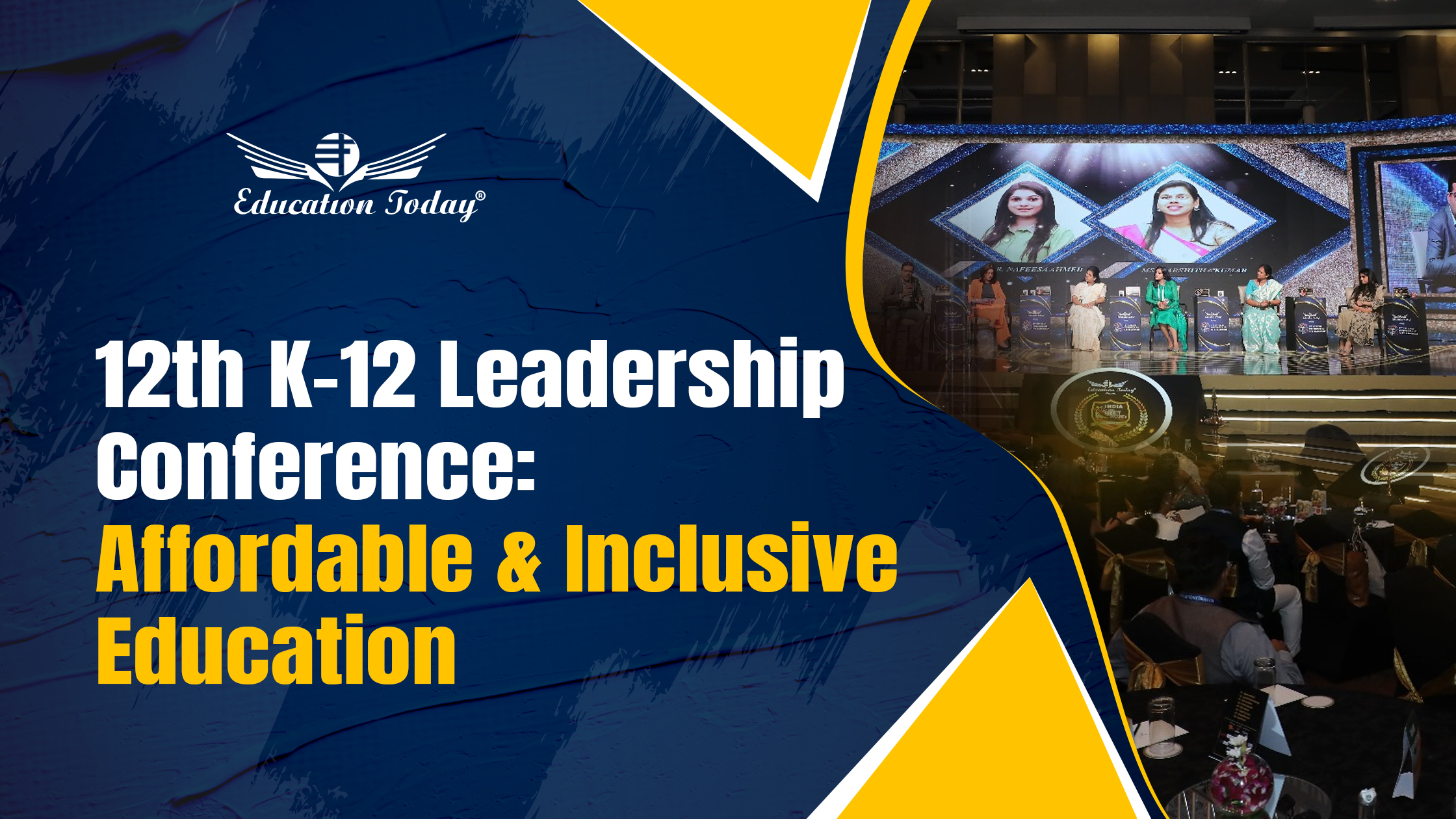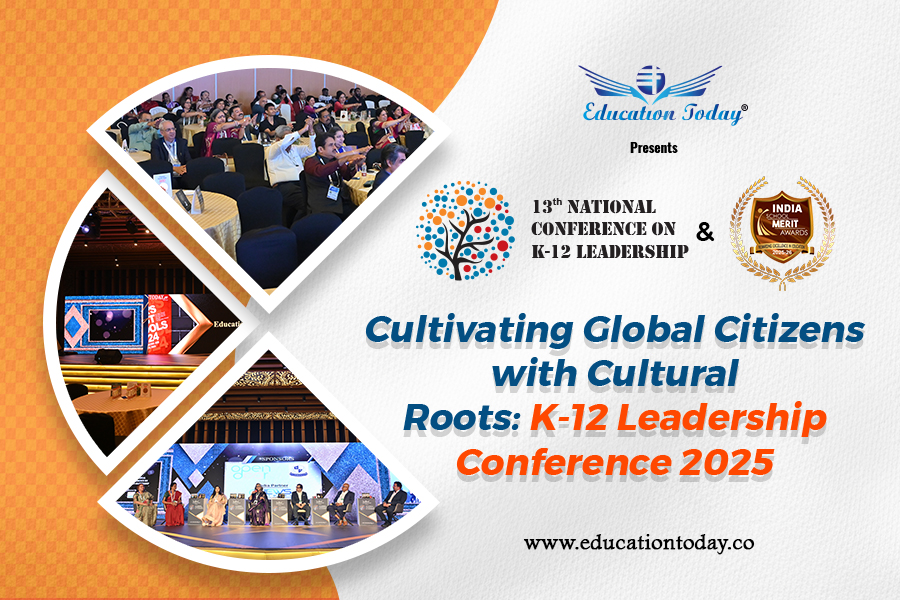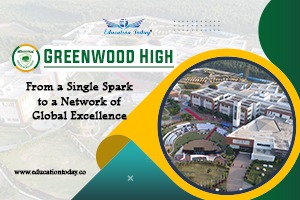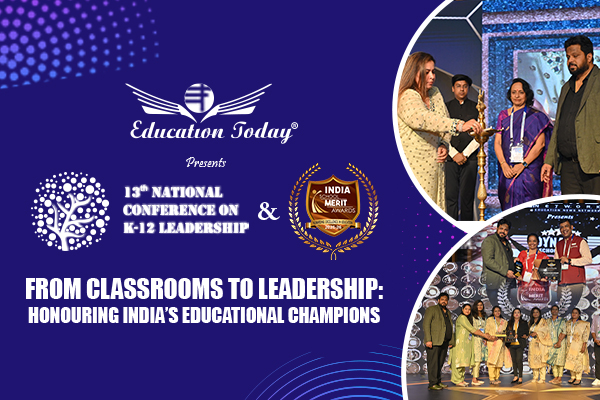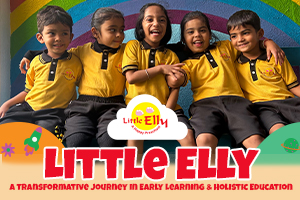Insights on Affordable and Inclusive Education from the 12th K-12 Leadership Conference
At Education Today, education is not just about imparting knowledge; it's about creating a lasting impact. We've been at the forefront of celebrating and advancing educational excellence for over a decade. Our commitment to recognizing the nation's best schools and educators remains unwavering, and we continue to offer fresh perspectives on India's evolving education landscape. This year, we hosted the prestigious 12th National Conference on K -12 Leadership 2024 and India School Merit Awards 2024 with Popcorn Furniture, powered by Unipro, and Knowledge Partner SSVM Institutions. This event was a testament to our legacy of honoring the country's educators and institutions that drive change.
The event, held on December 10th, 2024, at The Taj, Bengaluru, brought together a vibrant group of educators, consultants, school principals, and other stakeholders across India. This dynamic assembly gathered under one roof to celebrate and recognize the achievements of the nation's top educators. The awards segment of the event was a grand occasion that highlighted those who have made exceptional contributions to education.
In a rapidly evolving world, one of the biggest challenges remains ensuring that every child has access to quality education, regardless of their geographical or socio-economic background. At the recent panel discussion, "Ensuring Affordable and Accessible Education to All," a group of esteemed educators and thought leaders gathered to share their insights on overcoming the barriers that limit educational access and promote inclusivity.
The Panel: A Diverse Group of Educators
The panel, which was chaired by Ms. Susheela Santosh, Director of Vishwa Vidyapeeth Group of Schools, featured a distinguished lineup of panelists who brought diverse perspectives to the table. These included:
- Ms. Susheela Santosh – Director, Vishwa Vidyapeeth Group of Schools
- Dr. Nafeesa Ahmed – Director, Presidency Group of Institutions
- Ms. Harshitha Kumar-Deen – National Public School, JP Nagar & Vartur, Bengaluru
- Mr. Manas Mehrotra – Trustee, Greenwood High English School & Chief Mentor of Kara4kids
- Mr. Mansoor Ali Khan – Member, Board of Management, DPS Bangalore & Mysore
- Ms. Srisha Mohandoss – Co-founder, Ruh Continuum Schools, Coimbatore
- Ms. Nooraine Fazal – Co-founder, CEO & Managing Trustee of Inventure Academy, Bengaluru
- Mr. K. Sreekanth Babu – Director, Kennedy & NextGen Schools, Guntur & Ongole
The Discussion: Bridging the Gap in Education
The session explored how institutions can create a distinctive identity while ensuring education is both affordable and accessible. The conversation delved into various challenges and innovative solutions that can help break down the barriers faced by underprivileged students in both urban and rural areas.
Mr. Manas Mehrotra began the discussion by reflecting on his extensive travels across schools in India, both aided and unaided. He highlighted the cultural and systemic challenges that prevent many children from accessing quality education, particularly in rural areas. He stressed the importance of not only introducing government initiatives but also ensuring their effective execution, advocating for policies that cater to both urban and rural needs. He pointed out the disparities in demand for state board, CBSE, and ICSE schools, emphasizing the need for well-rounded, accessible educational opportunities for all children.
Ms. Harshitha Kumar-Deen shared her initiative to bridge the gap for underprivileged children through a program where school students teach disadvantaged children. This initiative promotes empathy and community engagement and extends to sports programs, encouraging children from underserved communities to develop new skills and gain recognition. This approach, proven successful over the past two years, has helped these children grow holistically.
Ms. Srisha Mohandoss, co-founder of Ruh Continuum Schools, spoke about her institution's inclusive approach to education. Drawing inspiration from her mother, Dr. Manimekalai Mohan, who founded SSVM institutions focusing on inclusive education, Srisha discussed how her school provides free education to children from disadvantaged backgrounds, including those with disabilities. She also advocated for adopting a public-private partnership model in India, which could significantly improve access to high-quality education nationwide.
Dr. Nafeesa Ahmed, Director of the Presidency Group of Institutions, highlighted broader obstacles, such as the rural-urban divide and inconsistent quality of education across states. She pointed out the lack of adequate public spending on education. She stressed the need for stronger public-private partnerships to enhance the quality and accessibility of education, particularly in rural areas. She also mentioned digital infrastructure and teacher training as critical areas that require immediate attention.
Ms. Nooraine Fazal, co-founder and CEO of Inventure Academy, emphasized the need for the education system to evolve in response to the changing needs of students and the world. She shared the success story of Inventure Academy’s adoption of a Kannada medium government school, which was transformed into an English-medium school, growing from 190 to 1,050 students. She suggested that this model of adopting and improving government schools could be a scalable solution to ensure quality education reaches the most underserved communities.
Ms. Susheela Santosh concluded the discussion by highlighting the importance of giving back to society through education. Under her leadership, Vishwa Vidyapeeth Group of Schools has adopted a government school, where teachers and students contribute to uplifting underprivileged students. Additionally, students who excel academically in government schools are offered free education at Vishwa Vidyapeeth, providing them a platform for success. She shared how such initiatives foster community, boost self-esteem, and reduce student social disparities.
Conclusion: Collective Efforts for a More Inclusive Education System
The panel discussion concluded with a shared emphasis on the importance of collective efforts in shaping the future of education in India. The central theme was clear: providing accessible, high-quality education for all, regardless of socio-economic background or geographic location, should be a priority.
Public-private partnerships, inclusive practices, and technology were all seen as key enablers in achieving this goal. The leaders advocated for a holistic approach to education that focuses on academic excellence and empowers students through inclusivity, social engagement, and practical learning. By ensuring that every child has the opportunity to thrive, we can build a more equitable and inclusive education system for India’s diverse population.
As the conversation around education continues to evolve, it is clear that the solutions to achieving true accessibility and affordability lie in collaboration, innovation, and a commitment to addressing the needs of all learners. The path forward requires thoughtful leadership and sustained effort from all sectors of society.

